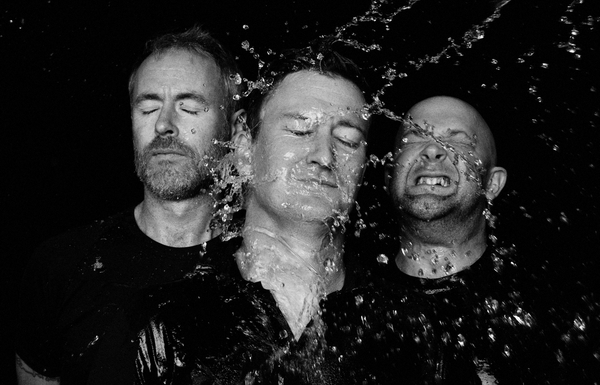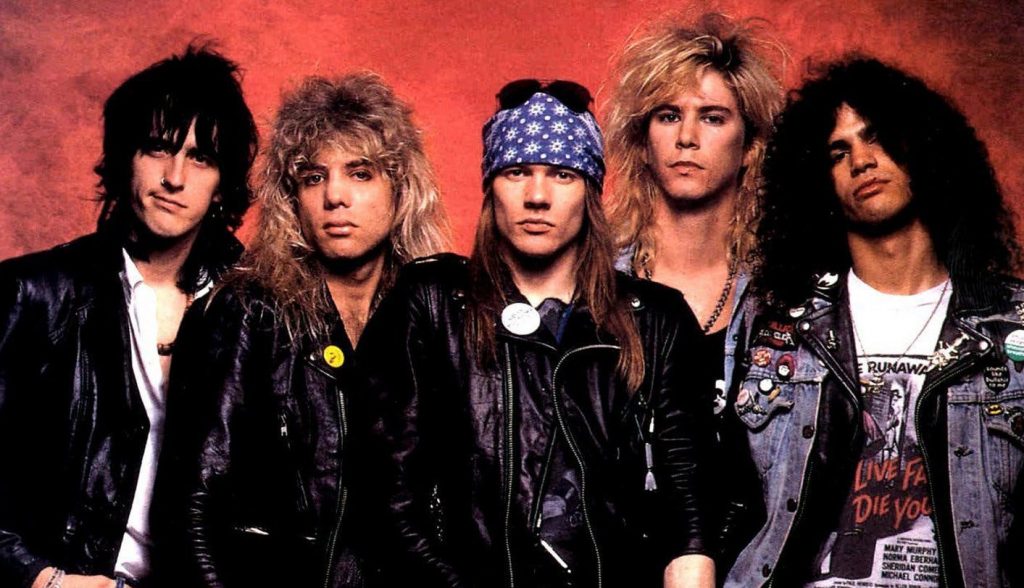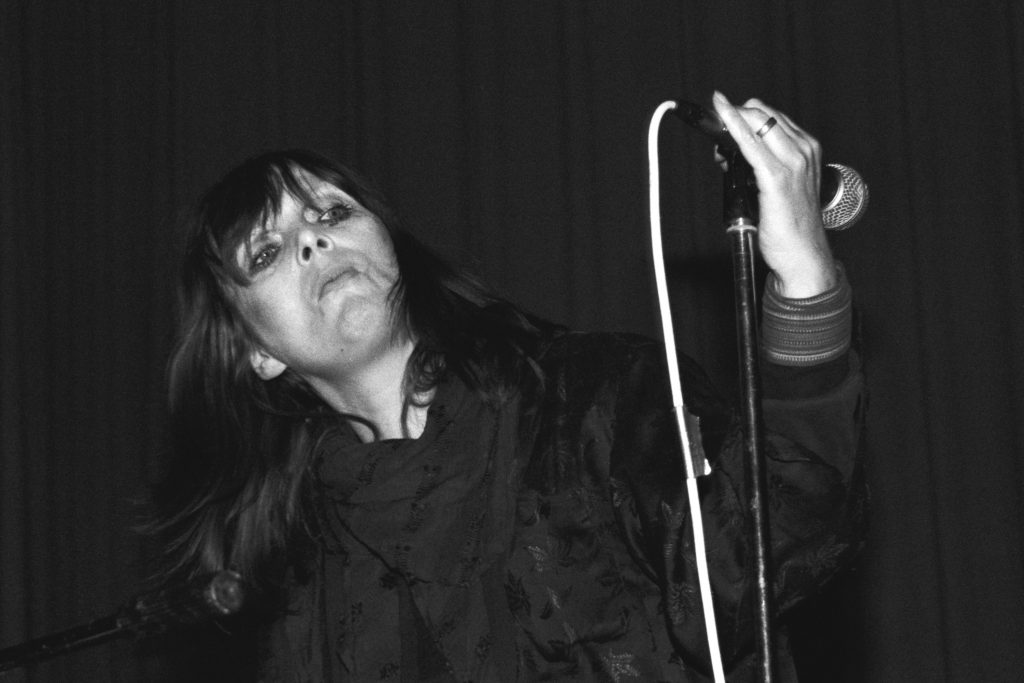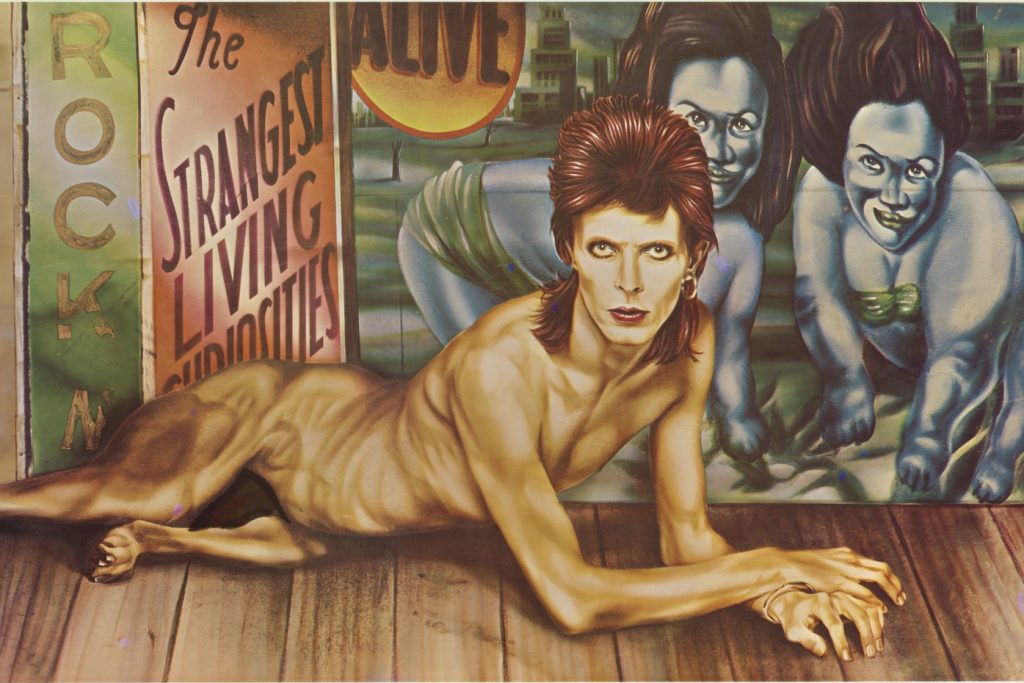“I don’t have a brother and he’s never been to jail,” he laughs. “That’s the thing about nervous energy, it does amazing things. Sometimes I go into some sort of storyline and that one’s pretty embarrassing.”
In this instance, Scott might’ve been fibbing, but that does nothing to lessen the impact of The Peep Tempel’s songs. Big Fish is taken from the band’s second LP Tales, which came out last October. The album is loaded with fascinating and slightly unnerving character portrayals; accompanied by gritty three-piece rock arrangements; and topped off by Scott’s off-kilter, and frequently aggressive, vocal charisma. The album’s lead single Carol (which was recently nominated for APRA song of the year) perfectly portrays the band’s arresting strength. When Scott imploringly bellows, “I don’t think Trevor is good for you… Carol,” it matters little if these people actually exist.
“They’re urban fairytales in a sense,” Scott says, “but everything that is behind them is that unhinged nervousness and me generally not being the most stable individual. I’ve always been a bit unhinged. I’m very erratic. Music helps me manage that a little bit. I get to yell and scream and flip out and that sort of thing.”
Scott’s not the only one channelling dangerous impulses into this music. Since forming the band in 2008, he and his band mates – drummer Stevie Striker and bass player Stewart Rayner – have used The Peep Tempel as a platform for frantically exerting themselves.
“This band has been a lot to do with the noise and how furious it is,” Scott says. “It’s really taxing on the body for all of us. In the writing process we’ve always kept that in mind. It needs to be something that we’re having to work really hard to get to the end of. It’s some sort of grit in amongst the every day living.”
Understandably, the band’s physically exhaustive compositions make live performance a continual challenge. “I almost liken this band to playing a team sport,” says Scott. “Having that satisfaction at the end that you’ve gone out and got stuck in and gone hard. There’s probably a sinister deeper meaning to why us as a band and sometimes people in general want to put themselves through physical and emotional exertion, but there’s something really pure and cool about it.”
This Saturday’s Howler show comes at the tail end of The Peep Tempel’s biggest Australian headline tour to date. The size of these shows is indicative of how far the band’s profile has lifted since the release of Tales. In many respects, the album was a breakaway success. Upon release, it received praise from publications countrywide, and both Carol and Big Fish became minor viral sensations. Then earlier this year the recordwas one of nine albums shortlisted for the Australian Music Prize. Strangely enough, prior to its release, Scott had mixed emotions.
“The other guys were a lot more optimistic than I was,” he says. “[Writing and recording] wasn’t a really enjoyable experience the whole way through. The actual recording of the final product was great, but I just felt a bit flat after we’d mixed it, whether that be exhaustion or I’d just invested too much in it. It’s not that I don’t think Tales is strong, but at the time there was a lot of trepidation. Stuff like the The Opera of Lester Moore. As fun as it was, the idea of doing a quirky opera thing, a real theatrical sort of track, it’s like, ‘Well how our people going to receive that?’ I was a bit insecure about it.”
In the ensuing months, Scott’s spirits have lifted: “It hasn’t been until I’ve actually heard the feedback on the record and people who I respect speak to us about the album that I’ve started to go, ‘Wow, you know what, that is actually pretty cool’.”
That’s putting it modestly. The Peep Tempel’s music elicits appeal on a number of levels. Firstly, it’s a heck of a lot of fun; loud and brash, yet relatable and often humourous. But, while amusing at the surface, there’s a pronounced darkness within, which has profoundly affected some listeners.
“There was a particular guy in Brisbane who was talking about what the record meant to him and how it had given him so much joy in a time of his life that he wasn’t getting much of that anywhere else,” Scott says. “It was confronting and difficult to have that conversation with him. I never pictured our album to be one to help anyone kick on through a difficult time. It’s just a rock’n’roll record.
“We do come across people quite often who really are invested in the band. It’s not just like, ‘Gee, I like your music.’ We have some very, very passionate fans. It shows that we’re doing something right.”
BY AUGUSTUS WELBY







